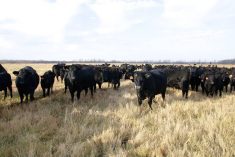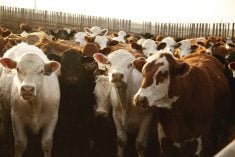A new report from the House of Commons agriculture committee recommends stronger defences when it comes to diseases like avian influenza, BSE, foot and mouth disease and African swine fever.
The report, Protecting Against Animal Biosecurity Risks: The State of Canada’s Preparedness, included seven recommendations to combat existing and future disease concerns.
The committee’s interest follows continued avian influenza outbreaks across Canada. While cases have not reached 2022’s fever pitch in the United States and Canada, the Canadian Food Inspection Agency counted 76 actively infected premises as of Dec. 14. Since late 2021, the disease had affected more than 10.9 million domestic birds as of that date.
Read Also

New coal mine proposal met with old concerns
A smaller version of the previously rejected Grassy Mountain coal mine project in Crowsnest Pass is back on the table, and the Livingstone Landowners Group continues to voice concerns about the environmental risks.
In April, the committee adopted a motion to “undertake a study regarding the preparedness and safeguards in place.”
In May, witnesses reassured committee members on the state of Canada’s biosecurity preparedness. Experts on the industry cited “extensive efforts undertaken at the farm and industry-wide levels to prepare for … outbreaks,” the report reads.
That was no reason to relax. Producers and others involved in the livestock chain “nonetheless encouraged continued vigilance from the federal government” in the area of biosecurity preparedness, the report noted.
The committee concluded Canada should improve its biosecurity preparedness by working closely with international partners, increasing funding for biosecurity technologies and conducting annual reviews of biosecurity protocols.
It also recommended that Canada’s ability to respond to outbreaks be bolstered by developing new vaccines through public-private partnerships, encouraging the standardization of requirements for animal medications, and developing and maintaining vaccine banks.
Witnesses expressed concern over a shortage of qualified veterinarians in Canada and called on the federal government “to increase immigration pathways for overseas veterinarians.”
A similar issue was brought forward at November’s meeting of the Association of Manitoba Municipalities, in which local governments agreed that the organization should lobby the province to ease the way for foreign-trained veterinarians.
Other recommendations included a national awareness campaign on the importance of biosecurity preparedness, prioritizing protocol agreements with Canada’s trading partners, reviewing compensation policies in the case of necessary animal destruction and reviewing the requirements for disposal of risk materials.
With files from Alexis Stockford


















